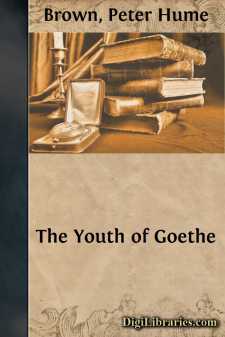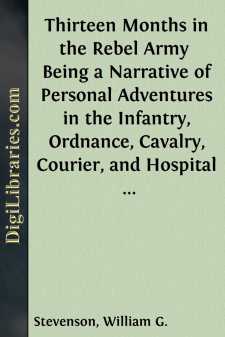Biography & Autobiography
- Adventurers & Explorers 15
- Artists, Architects, Photographers 16
- Business 2
- Composers & Musicians 14
- Criminals & Outlaws 5
- Editors, Journalists, Publishers 6
- Educators 1
- Entertainment & Performing Arts 3
- General 73
- Health, Exercise & Fitness 1
- Historians 3
- Historical 83
- Law Enforcement 1
- Lawyers & Judges 3
- Literary 147
- Medical 7
- Military 48
- Naturalists, Gardeners, Environmentalists 8
- Personal Memoirs & Diaries 226
- Philosophers 3
- Political 9
- Presidents & Heads of State 38
- Religious 38
- Rich & Famous 27
- Scientists 13
- Women 31
Biography & Autobiography Books
Sort by:
I.--Right and Law All human eloquence, among all peoples and in all times, may be summed up as the quarrel of Right against Law. But this quarrel tends ever to decrease, and therein lies the whole of progress. On the day when it has disappeared, civilisation will have attained its highest point; that which ought to be will have become one with that which is; there will be an end of catastrophes, and...
more...
by:
Peter Hume Brown
PREFACE "Generally speaking," Goethe has himself said, "the most important period in the life of an individual is that of his development—the period which, in my case, breaks off with the detailed narrative of Dichtung und Wahrheit." In reality, as we know, there is no complete breach at any point in the lives of either nations or individuals. But if in the life of Goethe we are to...
more...
FOREWORD Naturally, there are chapters of my autobiography which cannot now be written. It seems to me that, for the nation as for the individual, what is most important is to insist on the vital need of combining certain sets of qualities, which separately are common enough, and, alas, useless enough. Practical efficiency is common, and lofty idealism not uncommon; it is the combination which is...
more...
by:
Thomas Hodgkin
The fifth and sixth centuries do not supply us with many materials for pictorial illustrations, and I do not know where to look for authentic and contemporary representations of the civil or military life of Theodoric and his subjects. We have, however, a large and interesting store of nearly contemporary works of art at Ravenna, illustrating the ecclesiastical life of the period, and of these the...
more...
CHAPTER I. HOW I VOLUNTEERED. Object in going to Arkansas. — Change of Purpose. — Young Acquaintances. — Questioned on Slavery. — Letter to my Parents. — Unfortunate Clause. — A Midnight Call. — Warlike Preparations. — Good Advice. — Honor among Lynchers. — Arrival at Court of Judge Lynch. — Character of Jury. — Trial commenced. — Indictment and Argument. — Excitement...
more...
by:
John Nichol
CHAPTER I INTRODUCTORY SUMMARY Four Scotchmen, born within the limits of the same hundred years, all in the first rank of writers, if not of thinkers, represent much of the spirit of four successive generations. They are leading links in an intellectual chain. DAVID HUME (1711-1776) remains the most salient type in our island of the scepticism, half conservative, half destructive, but never...
more...
No golden eagle, warm from the stamping press of the mint, is more sharply impressed with its image and superscription than was the formative period of our government by the genius and personality of Thomas Jefferson. Standing on the threshold of the nineteenth century, no one who attempted to peer down the shadowy vista, saw more clearly than he the possibilities, the perils, the pitfalls and the...
more...
by:
J. F. Foster
INTRODUCTION. In the early morning of Midsummer's-day, 1868, I might have been seen slowly wending my way towards the office of the Deputy Inspector General of Hospitals, at Peshawur—for the purpose of appearing before the standing Medical Committee of the station, and having an enquiry made concerning the state of my health. A Dooley followed me lest my strength should prove inadequate to the...
more...
by:
C. A. Rose
Breaking Us In. On a morning early in August, 1915, the Brigade disembarked at Havre without mishap to man, horse, or material, and proceeded to a Rest Camp on the outskirts of the town. We were in France at last! The same evening the Batteries started to entrain, and every two hours a complete unit was despatched up the line—to an unknown destination. The men received refreshments at various Haltes,...
more...
CHAPTER I. 1861.—Enthusiasm of the North.—Washington Threatened.—Bull Run, and Its Lessons.—General Scott and the Cavalry.—Enlistment under Captain Buel.—Harris Light Cavalry.—Leaving Troy, New York.— Captain A. N. Duffié.—Drilling and Fencing at Scarsdale, New York.—Bound for the Seat of War.—Philadelphia.—Baltimore.—Washington.—Camp Oregon. The eleventh of April, 1861,...
more...











